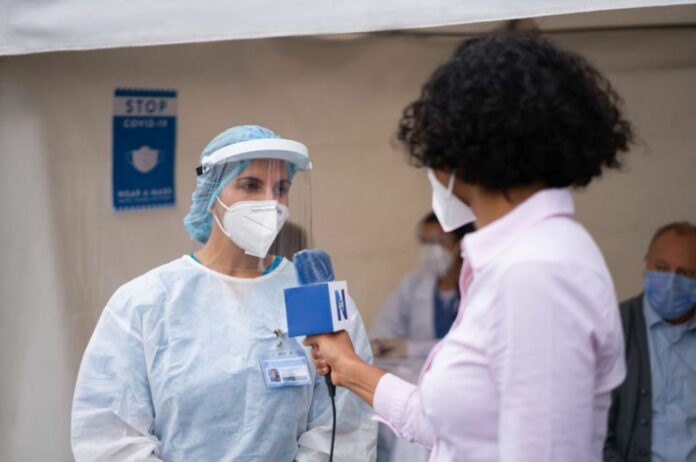COVID-19 is the first pandemic to occur alongside the Internet. Because of this, ideas and information about the disease have spread like never before—but they aren’t always right.
One of the stories that got a lot of attention was about how changing the land can cause diseases to spread from animals to people.
In a paper published in BioScience, Andre D. Mader and his colleagues from the Institute for Global Environmental Strategies look at primary and secondary literature as well as web content about land change and the risk of zoonotic diseases.
Mader and colleagues outline what amounts to a case study on inappropriate science communication and its potential repercussions using trends found in this literature and media coverage.
The authors say that media coverage always showed a direct link between the spread of zoonotic diseases and changes in land use, even though only 53% of the peer-reviewed literature they looked at made this link.
The authors use hypothetical situations to show how hard it is to track down the real risk of zoonotic spillover. They stress that the “complexity of pathogen responses to land change cannot be reduced to one-size-fits-all proclamations.”
With 78% of secondary papers implying the land use-zoonotic spillover association and all but one of the sampled webpages making this connection, the authors found that the “overstating of the evidence” increases as the literature progresses from primary research to review articles and commentary pieces and then to websites.
The authors also pointed out that secondary publications and websites sometimes omitted to identify the degree of uncertainty around their findings.
Mader and his colleagues say that simple messages and a lack of proper communication about zoonotic spillover can hurt credibility, ignore the needs of local communities when making policy, and take attention away from other things that can lead to zoonotic spillover.
The authors suggest that findings on zoonotic spillover risk be shared in a more precise, nuanced, and explanatory manner, claiming that doing so would help advance science more generally.
“If the goal of science communication is to improve understanding,” as concluded by the authors, “it must strike a balance: sufficient simplicity to be grasped by as broad an audience as possible but sufficient nuance to capture the complexity of an issue and contribute meaningfully to the discussion around it, especially when it goes viral.”
Source: 10.1093/biosci/biac075
Image Credit: Getty
You were reading: This Is Why You Should Not Trust Everything Science Says – “Especially When It Goes Viral”
